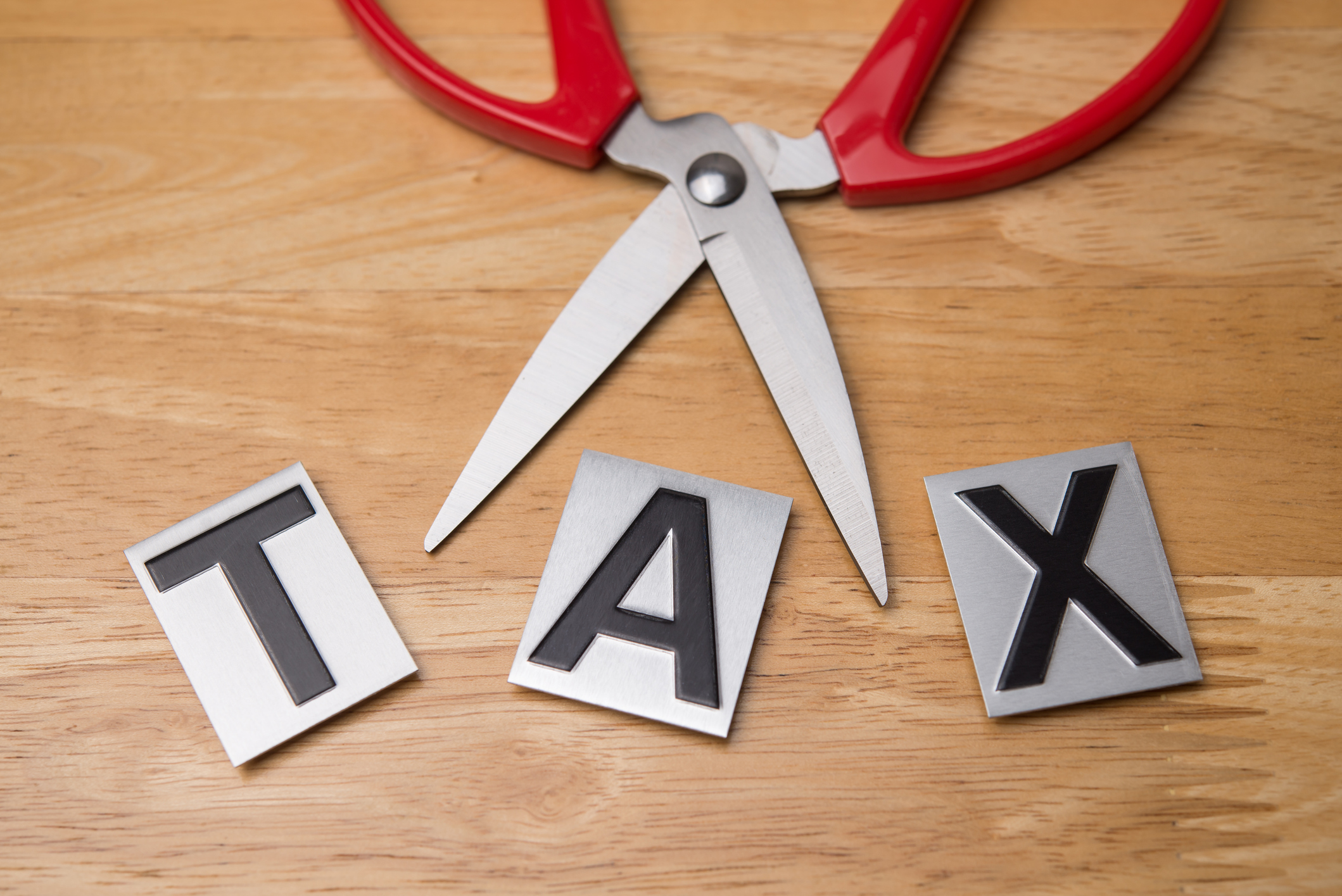Trump’s 100% Movie Tariff: Will It Double Your 2025 Ticket Prices?
Trump’s proposed 100% tariff on foreign films could threaten global productions and your wallet.


Profit and prosper with the best of Kiplinger's advice on investing, taxes, retirement, personal finance and much more. Delivered daily. Enter your email in the box and click Sign Me Up.
You are now subscribed
Your newsletter sign-up was successful
Want to add more newsletters?

Delivered daily
Kiplinger Today
Profit and prosper with the best of Kiplinger's advice on investing, taxes, retirement, personal finance and much more delivered daily. Smart money moves start here.

Sent five days a week
Kiplinger A Step Ahead
Get practical help to make better financial decisions in your everyday life, from spending to savings on top deals.

Delivered daily
Kiplinger Closing Bell
Get today's biggest financial and investing headlines delivered to your inbox every day the U.S. stock market is open.

Sent twice a week
Kiplinger Adviser Intel
Financial pros across the country share best practices and fresh tactics to preserve and grow your wealth.

Delivered weekly
Kiplinger Tax Tips
Trim your federal and state tax bills with practical tax-planning and tax-cutting strategies.

Sent twice a week
Kiplinger Retirement Tips
Your twice-a-week guide to planning and enjoying a financially secure and richly rewarding retirement

Sent bimonthly.
Kiplinger Adviser Angle
Insights for advisers, wealth managers and other financial professionals.

Sent twice a week
Kiplinger Investing Weekly
Your twice-a-week roundup of promising stocks, funds, companies and industries you should consider, ones you should avoid, and why.

Sent weekly for six weeks
Kiplinger Invest for Retirement
Your step-by-step six-part series on how to invest for retirement, from devising a successful strategy to exactly which investments to choose.
President Trump is at it again with tariff proposals. On his social media platform Truth Social, Trump floated a 100% tariff on all movies produced outside the United States. As you would guess, the post is sending shockwaves through Hollywood and raising alarm bells for moviegoers.
While such a tariff wouldn’t impact a movie like Sinners (filmed in the United States), many blockbusters are filmed in international locations. (Think of action franchises set in European capitals, like Mission: Impossible with scenes shot in Paris and London, or sci-fi epics shot in New Zealand like Avatar and The Lord of the Rings trilogy.)
So, could this policy, if adopted, impact what we see in theaters and how much we pay for a ticket? Read on.
From just $107.88 $24.99 for Kiplinger Personal Finance
Become a smarter, better informed investor. Subscribe from just $107.88 $24.99, plus get up to 4 Special Issues

Sign up for Kiplinger’s Free Newsletters
Profit and prosper with the best of expert advice on investing, taxes, retirement, personal finance and more - straight to your e-mail.
Profit and prosper with the best of expert advice - straight to your e-mail.
Movie tariffs? What was announced?
Back in May, President Trump declared via social media that his administration would immediately begin imposing a 100% tariff on any film made outside the U.S. and imported for American audiences.
“The Movie Industry in America is DYING a very fast death. Other Countries are offering all sorts of incentives to draw our filmmakers and studios away from the United States. Hollywood, and many other areas within the U.S.A., are being devastated. This is a concerted effort by other Nations and, therefore, a National Security threat. It is, in addition to everything else, messaging and propaganda! Therefore, I am authorizing the Department of Commerce, and the United States Trade Representative, to immediately begin the process of instituting a 100% Tariff on any and all Movies coming into our Country that are produced in Foreign Lands. WE WANT MOVIES MADE IN AMERICA, AGAIN!”
Trump, who renewed his desire for such a tariff on September 29, claims the measure is necessary to protect American jobs and the domestic film industry, which he says is undercut by foreign governments offering lucrative incentives to lure overseas productions.
He has also framed the issue as a national security threat, suggesting that foreign-made films could be used for propaganda.
Both the May and September announcements lacked specifics, leaving studios, distributors, and theater owners scrambling to understand which films would be affected.
Would the tariff hit only foreign-made blockbusters? Or, would it also apply to smaller international films and even U.S. productions partially filmed abroad?
The lack of clarity has only added to industry and moviegoer anxiety.
Movie industry: What about film tax credits?
All of this begs the question, why now and why movies?
The U.S. film industry has been facing several challenges. For example, the pandemic, labor strikes, and the rise of streaming have all contributed to a decline in traditional movie production.
- In 2020, feature film production reportedly dropped by 40% due to COVID-19 restrictions, marking a historic low for the industry.
- The Los Angeles Times reports that the 2025 box office is off to a weak start, with revenues down and few breakout hits.
Meanwhile, some studios have increasingly turned to overseas locations to take advantage of tax breaks and lower production costs. Cities like London, Vancouver, and Sydney have become hotspots for major Hollywood shoots, some say at the expense of jobs in U.S. cities.
Trump sees this tariff as a way to reverse that trend. Essentially, he wants to make it more expensive for studios to film abroad. He has also criticized California leadership for not doing enough to keep productions local, while some state officials have countered with proposals for bigger tax incentives.
However, some argue that film tax credits, incentives offered by state governments to encourage filmmakers to produce movies in their states, could be more effective than a sweeping tariff.
It’s worth noting that there is currently no federal film tax credit in U.S. but state-level credits allow producers to recover a portion of their spending on things like local labor, equipment, and services, effectively reducing the overall cost of production.
- For instance, New York offers a 30% refundable tax credit on qualified production expenses, with an annual cap of $700 million.
- California is considering raising its annual cap from $330 million to $750 million and recently introduced refundable film credits to stay competitive.
Newsom calls for 'federal partnership'
In response to Trump’s initially proposed 100% tariff on foreign films, California Gov. Gavin Newsom unveiled a plan for a sweeping federal tax credit program to strengthen the American film industry.
Building on successful California incentives, Newsom called for at least $7.5 billion in federal tax breaks to encourage film and television production to remain in the U.S.
He took to X (formerly Twitter) on May 5, 2025, to make his case, writing, “California built the film industry – and we’re ready to bring even more jobs home. We’ve proven what strong state incentives can do. Now it’s time for a real federal partnership to Make America Film Again. @POTUS, let’s get it done.”
In a media statement, Newsom added, “America remains a cinematic leader, and California is fully committed to attracting more production here.”
What could a new tariff mean for moviegoers?
If the tariff goes into effect as described, it could have a dramatic impact on ticket prices.
Analysts warn that a 100% tariff would increase the cost of importing foreign-made films, which could easily be passed on to consumers.
That could mean a $15 movie ticket might double to $30 for films shot outside the U.S., a price jump that could discourage many from going to the theater. That's especially true with already high prices of many essential goods and tariffs threatening even higher costs on everything from soda and metals to toys, furniture, food, and phones.
Studios would also face tough choices. Many rely on international locations to keep costs down and add visual variety to their films. If filming abroad becomes too expensive, they may return more productions to the U.S. But that could mean higher production costs and potentially fewer movies.
And...this latest announcement comes as Trump’s approval ratings on the economy have fallen to their lowest levels of his presidency.
Recent polls show about only 36–40% of Americans approve of his management of the economy, while disapproval has climbed to 56% or higher. Many seem to be worried about his new tariff policies, plus inflation, and a potential recession.
Movie tariff: Bottom line
At this point, the devil is in the details. The administration hasn’t clarified whether the tariff would apply to films with only some scenes shot abroad, or to streaming-only releases.
In response to Trump’s announcement, U.S. Commerce Secretary Howard Lutnick posted on X: “We’re on it.”
Plus, there’s already blowback. Some industry leaders are telling Deadline the proposal is “insane,” and other experts question whether the executive branch can legally impose such a broad tariff on movies.
Stay tuned.
This story has been updated to include information about Gov. Gavin Newsom's response.
Read More on Tariffs
- Trump Tariff Update: What's Happening Now
- Which States Will Be Hardest Hit By Trump Tariffs?
- How Tariffs Work and What They Mean for You
Profit and prosper with the best of Kiplinger's advice on investing, taxes, retirement, personal finance and much more. Delivered daily. Enter your email in the box and click Sign Me Up.

Kelley R. Taylor is the senior tax editor at Kiplinger.com, where she breaks down federal and state tax rules and news to help readers navigate their finances with confidence. A corporate attorney and business journalist with more than 20 years of experience, Kelley has helped taxpayers make sense of shifting U.S. tax law and policy from the Affordable Care Act (ACA) and the Tax Cuts and Jobs Act (TCJA), to SECURE 2.0, the Inflation Reduction Act, and most recently, the 2025 “Big, Beautiful Bill.” She has covered issues ranging from partnerships, carried interest, compensation and benefits, and tax‑exempt organizations to RMDs, capital gains taxes, and energy tax credits. Her award‑winning work has been featured in numerous national and specialty publications.
-
 Quiz: Do You Know How to Avoid the "Medigap Trap?"
Quiz: Do You Know How to Avoid the "Medigap Trap?"Quiz Test your basic knowledge of the "Medigap Trap" in our quick quiz.
-
 5 Top Tax-Efficient Mutual Funds for Smarter Investing
5 Top Tax-Efficient Mutual Funds for Smarter InvestingMutual funds are many things, but "tax-friendly" usually isn't one of them. These are the exceptions.
-
 AI Sparks Existential Crisis for Software Stocks
AI Sparks Existential Crisis for Software StocksThe Kiplinger Letter Fears that SaaS subscription software could be rendered obsolete by artificial intelligence make investors jittery.
-
 Trump $10B IRS Lawsuit Hits an Already Chaotic 2026 Tax Season
Trump $10B IRS Lawsuit Hits an Already Chaotic 2026 Tax SeasonTax Law A new Trump lawsuit and warnings from a tax-industry watchdog point to an IRS under strain, just as millions of taxpayers begin filing their 2025 returns.
-
 Don't Overpay the IRS: 6 Tax Mistakes That Could Be Raising Your Bill
Don't Overpay the IRS: 6 Tax Mistakes That Could Be Raising Your BillTax Tips Is your income tax bill bigger than expected? Here's how you should prepare for next year.
-
 Oregon Tax Kicker in 2026: What's Your Refund?
Oregon Tax Kicker in 2026: What's Your Refund?State Tax The Oregon kicker for 2025 state income taxes is coming. Here's how to calculate your credit and the eligibility rules.
-
 Tax Season 2026 Is Here: 8 Big Changes to Know Before You File
Tax Season 2026 Is Here: 8 Big Changes to Know Before You FileTax Season Due to several major tax rule changes, your 2025 return might feel unfamiliar even if your income looks the same.
-
 Law Reversal Looming? Trump Eyes 2026 Gambling Winnings Tax Change
Law Reversal Looming? Trump Eyes 2026 Gambling Winnings Tax ChangeTax Deductions It's no secret that the IRS is coming after your gambling winnings in 2026. But how long will that last?
-
 Trump's Plan to Eliminate Income Tax: 7 Things to Know Now
Trump's Plan to Eliminate Income Tax: 7 Things to Know NowTax Policy The potential consequences of eliminating taxes in favor of Trump tariffs could impact everything from inflation to Social Security and might give some U.S. taxpayers pause.
-
 Costco Sues Over Trump Tariffs: What Could That Mean for Prices in 2026?
Costco Sues Over Trump Tariffs: What Could That Mean for Prices in 2026?Tariffs The retailer is making headlines not just for its famous hot dog and gold bars but for suing the Trump administration over tariffs.
-
 Are New Trump $2,000 Stimulus Payments Coming in 2026? What to Know Now
Are New Trump $2,000 Stimulus Payments Coming in 2026? What to Know NowTax Policy A promise of $2,000 tariff dividend checks is raising questions and fueling confusion.